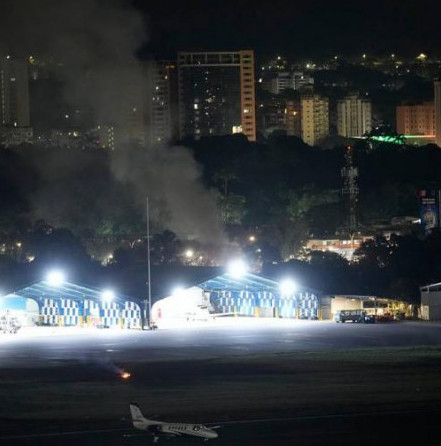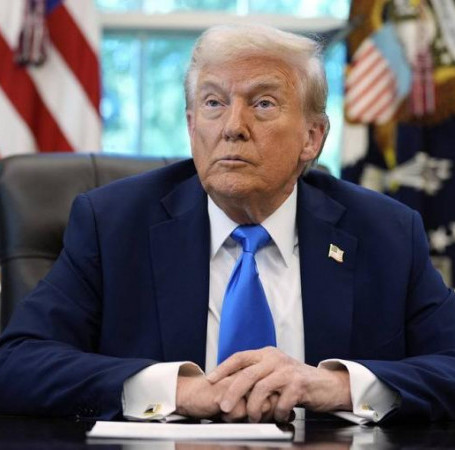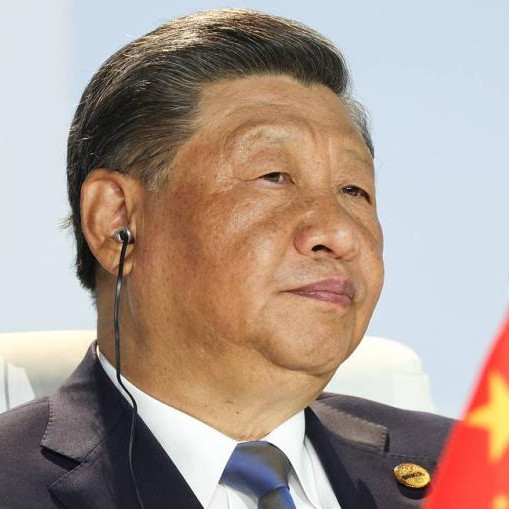Recently, one can often hear and read in the media about the alleged imminent war with Iran. Its probability is being discussed at the expert level, including diplomats and politicians.
The question arises: why in general is it referred to war with Iran? What in general has Iran done or is doing that it is required to start military action against it? This “expectation” alone is a very alarming sign, and creates the impression that the world public opinion is being hard prepared for a military solution of the so-called problem of Iran’s “nuclear program”.
The question naturally arises as to the existence of a serious and dangerous problem that needs to be addressed only by military means.
Is it the case of a long-standing and active information war against Iran and the preparation of conditions for unleashing hot war? The pretext put forward for a possible strike against Iran is the possible presence in this country of a program to build an atomic bomb. However, so far there is no conclusive evidence of Iranian work on nuclear weapons. Intelligence agencies of the U.S., Israel, and probably other countries do not have reliable information about the military component of Iran’s nuclear program. As a result, there is no evidence of carrying-out a program to build an atomic bomb in Iran, but this actually not existing threat is presented as a reason for possible bombing of Iran and its nuclear facilities.
It should be recalled that the war against Saddam Hussein was also initiated under the pretext of the existence of weapon of mass destruction in Iraq, which was never found, but the war was unleashed, and the country was actually broken down. Thousands of civilians were killed or injured in the name of “struggle against dictatorship”. Such a scenario is now trying to be implemented in Syria with the assistance of the Arab fighters who have gained the experience of overthrowing the Gaddafi regime and consist mainly of representatives of radical Islamic movements.
Under the banner of the struggle for democracy against dictatorship, Libya was subjected to brutal bombing by NATO forces, supported by some, not at all democratic Arab regimes. In the end, the head of state is killed, thousands of civilians are killed, the country lies in ruins. The future of Libya as a single democratic state remains doubtful in connection with the surge of separatism and growth of radical Islamism.
Returning to Iran, it seems that an idea about the need to stop the nuclear weapons program of the country is being imposed on all of us, but in reality it is a case of trying to change the current political system, and as a result, also the potential dismemberment of the country.
Iran has repeatedly declared the peaceful nature of its nuclear program and the desire to develop nuclear technology, particularly enrichment of uranium to be used for power generation, medicine and scientific research.
Iran is in dire need of development of its electricity generation capacities. Power requirement in the country is growing rapidly and for its satisfaction new hydropower and thermal power plants are being built, alternative energy sources are being developed. Last year the country’s first nuclear power plant was commissioned, it was built with technical assistance of the Russian Federation. In prospect, providing nuclear fuel by the nuclear power plant in Bushehr will imports of fuel elements from abroad, particularly from Russia.
But Iran, taught by bitter experience of being subjected to various overt and covert sanctions, is seeking maximum self-sufficiency in modern technological fields. This is primarily the reason for a desire to master modern technologies, including the manufacture of fuel assemblies for nuclear power plants. However paradoxical this may seem, but it is sanctions that force Iran to develop and implement new technologies wherever possible and as much as possible. This explains also the desire of Iran to master uranium enrichment technologies in compliance with the provisions of the NPT.
Given Iran’s insistence to receive its own technological base for the enrichment of uranium to the permitted 20%, there are concerns about a possible transfer to enriching uranium up to weapons level. It is entirely possible if the Iranian leadership make a political decision; however it does not mean that Iran will build nuclear bomb. We can assume that while continuing work on the nuclear technology acquisition Iran will likely to stop at the threshold.
An unprecedented political and economic pressure exerted at the moment on Iran is based on the unlikely possibility of developing nuclear weapons, and even its use against Israel. From a military point of view Iran’s military actions against Israel are almost impossible with the use of conventional weapons (it has neither strength nor means sufficient to do this), not to mention the fact that Iran currently has neither nuclear weapons nor means for their delivery.
Among other things, Iran has no territorial claims against its neighbors and has no intention to wage war with anyone else, unless it is not attacked. In the modern history Iran has already had to repel the Iraqi invasion in the 80s of last century, and the armed forces of Iran were and are the guarantor of the independence and security of the country from external aggression. Therefore, Iran’s desire to strengthen its defence capability, particularly through the creation of tactical missiles, is quite understandable.
Unfortunately, the recent years after the collapse of the Soviet Union showed the constant flouting of international law by NATO countries headed by the United States and their conduct of wars in the name of “freedom and democracy”, including: the destruction of Yugoslavia as a single sovereign state; the aggression in Iraq; the bombing of Libya; the ongoing war in Afghanistan, where external aggression forces represented by the Taliban are acting with the support of U.S. ally – Pakistan; the armed support of the anti-government forces in Syria, and finally, a powerful information war against Iran that threatens to turn into a new aggression, with unpredictable consequences for the world. Ignoring this negative trend in international relations would be very shortsighted and dangerous.
The information war against Iran is conducted on several fronts: a psychological pressure with blowing up the threat of war; the United States is constantly building up its aircraft carrier group in the Persian Gulf; neighboring countries, particularly the Arab monarchies are intimidated by the growing economic and military power of Iran; false information about Iran’s involvement in terrorism is spread; there are attempts to quarrel the Sunnis and Shiites and to split the ranks of Muslims; there are cyberattacks; reconnaissance parties are sent to Iran to reconnoitre and collect intelligence, etc. The information war against Iran threatens to escalate into open aggression, which can be a prelude to a great war that will affect not only the Middle East and neighboring countries of Iran, above all Russia, but also the rest of the world.
Russia has consistently advocated for the resolution of all points at issue by peaceful means, through negotiations, consultations, consensus building, taking into account the interests of parties to conflicts on the basis of international law and respect for the sovereignty of all countries. I would like to wish the most aggressive proponents of the use of force in international relations to restrain their ardour and think seriously about the tragic consequences of a possible war.
The struggle for democracy should not turn into a crusade against those countries and nations who have chosen a path of independent development based on their historical experience and the achieved level of social and economic development.



